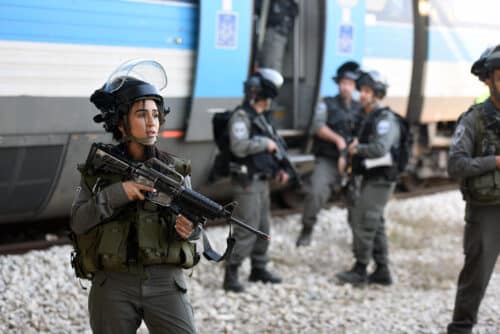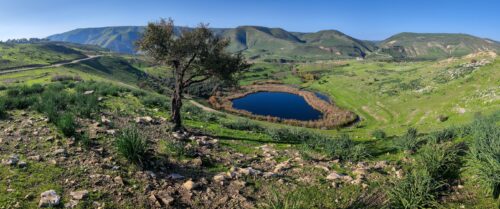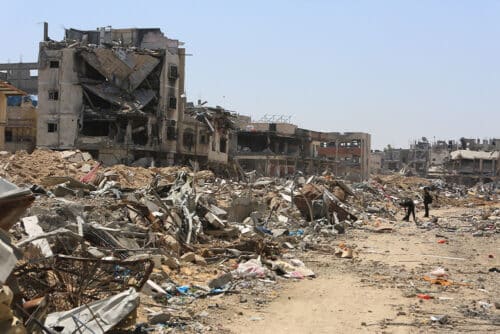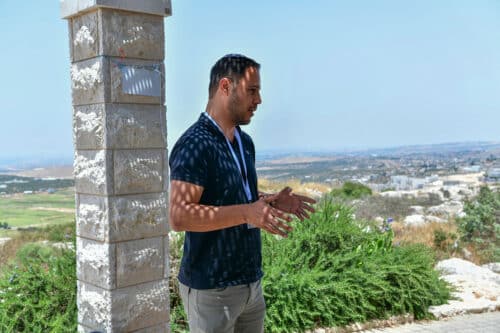An interview with Sara Ha’etzni from the “My Israel” Movement, who was behind the clip that rocked that country regarding the events that occurred in Lod in May 2021
“The news report that wasn’t broadcast on Israeli media” – That is how the film “Five Days in May” on the YouTube channel “My Israel” is described, which pointedly describes that which the Jewish residents of Lod experienced during the May Riots, in the shadow of Operation “Guardian of the Walls.”
The 41-minute film, which was broadcast on channel 14 and received over 150,000 views on YouTube and Facebook, does indeed show pictures that much of the Israeli media should have brought to the public’s attention – and chose not to. The footage present a disturbing image not only of the conduct of the Israeli media, but also that of the Israeli Police.
The woman behind the production of the film is Sara Ha’etzni-Cohen, an Israeli social activist and Chairwoman of the “My Israel” Movement, which promotes Zionism and Israeli Hasbara. Sara Ha’etzni-Cohen was in Lod during those violent days in May and saw up close the public disturbances and the collapse of the sense of personal security of the Jewish residents of Lod.
Sat down with Sarah in order to hear what happened behind the scenes and what needed to be done in order to fix it.

Grandma in the Window: The Breaking Point in the Violent Events in Lod
Sara Ha’etzni-Cohen is from Jerusalem, married and the mother of four. Her grandfather was one of the founders of Kiryat Arba, where she was born and grew up for most of her life. Alongside her leadership of the “My Israel” Movement, she also volunteers in the community with teenagers, writes a column for the “Israel Hayom” newspaper and conducts workshops and lectures.
Sarah, how did the idea for the film come about?
In truth, we didn’t think about making a movie when we were in Lod. We were busy saving lives. Only after the events ended, after the police managed to take control over the situation – as is supposed to happen in a functional country – did we understood that no one in the Israeli media, save perhaps for Amit Segal, was going to tell the story despite the stupendous and insane amount of material that existed, and we decided together with the Garin Hatorani of Lod – “If I am not for me, who is for me”. We’re making a movie. This is where I should also thank Miri Lavi, the movie’s producer and editor, and the Garin Hatorani of Lod, who supported production of the film.
What sort of reactions did you get for the film?
That depends. The public at large was in shock. The footage of the film was truly intense. The people who experienced the riots in Lod in person said, “thank you very much for telling our story”. I truly think that we created a historical document, even though we shouldn’t have been the ones to produce it. The media could have done the same exact thing we did, yet it did not do so and had almost entirely neglected what had happened in May in places such as Lod.
Describe one point, one moment, during the events where you were shocked by what you were exposed to.
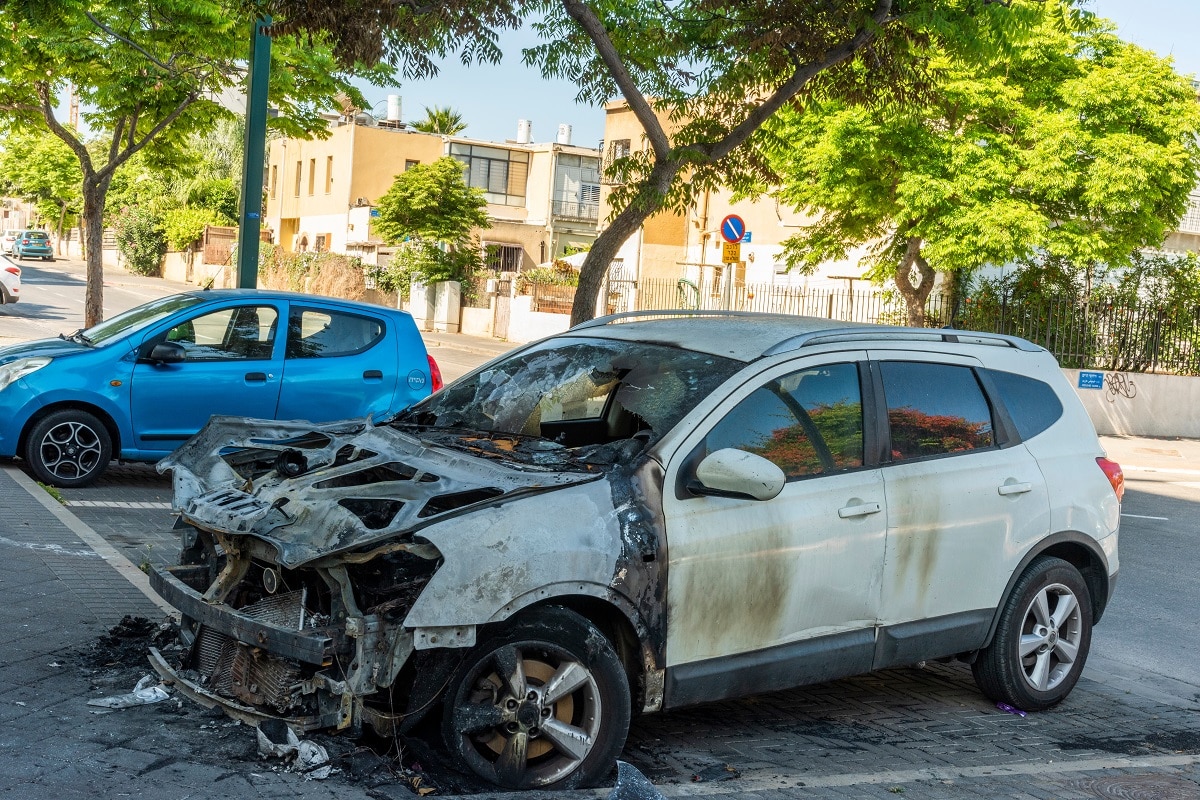
What broke me wasn’t the rioters and wasn’t the teenagers who set cars on fire – those sorts of things have always been and will always be with us. What’s tougher to deal with? When a grandma is standing at a window and telling those rioters which cars belonged to Jews and which did not. That’s what broke me. Beyond the violence, beyond the angry mob, this was something deeper: a grandmother standing at the window and directing the rioters which vehicles to burn. You could see the result with your own
“What happened in May was no less than an earthquake”
Let’s set the media aside for a moment. Where did the police go wrong?
The police did not understand the event: it wasn’t attentive, it wasn’t prepared in terms of intelligence and the police command structure was arrogant. All the security forces were focused on Jerusalem. And what happened in Lod? Instead of addressing the enemy as an enemy, they treated us as enemies. Police forces were deployed in the streets, but they stood statically and did nothing. They were unable to take control of the event since their operational concept was sterile and cowardly – they wanted to intervene as little as possible.
What is the most important thing you want people to take from watching this film?
I would like their takeaway to be from the events of May rather than from the movie. I want the average Israeli to understand that he is at war every single day – not necessarily in the field, but rather psychologically. The fight is over his head, over his perception of the world. The average Israeli must understand that what happened in May was an earthquake.
Why an earthquake? It sounds like we’ve gone back to 1948.
Correct. What we saw in Lod was a mini-1948. The GSS said that there were tens of thousands of rioters. I am claiming that the question is not how many rioters there were but rather how many are there in their circles of support. If there were “only” tens of thousands of rioters but hundreds of thousands of supporters, and perhaps more than that who simply remain silent – then we have a serious problem and that is exactly what happened in May.
What do you say about the claim that this isn’t 1948, but rather a matter of socioeconomic discrimination?
Obviously, it’s not about discrimination. “Itbach al-Yahud” does not mean “I’m hungry”. The narrative that sent rioters from their homes was not the socioeconomic gaps, even though many entities are attempting to obfuscate in that direction. In addition to this, the ultra-orthodox also have poverty and also live in development towns – yet nowhere did we see such barbaric violence break out against institutions, houses of worship, symbols of government and citizens as we saw in Lod. You can’t obfuscate the nationalist motif here, and whoever does – is deluding himself.
One of the insights the film reflected was that civil mobilization can help in times of violent unrest. Do you think such a civil National Guard should be instituted?
The idea of a civil National Guard is a good one, but no one is going to do it. It requires many resources and it certainly wouldn’t be approved in the current constellation of coalition. However, I must say that the Jews established the state precisely in order to avoid the need to mobilize civil forces. The state has the police and a law enforcement system, and the ordinary citizen expects, rightly, that the police will ensure his safety.
“Anyone who wants a shared life – needs to be strong”
Do you believe in peaceful coexistence between Jews and Arabs in the mixed cities?
I don’t know what coexistence is, but the reality is that we live here together, and this story of a shared life is fundamental. Anyone who wants this to succeed needs to be strong. Anyone who wants and believes in success and cultivating something good – better be strong. We live in the roughest neighborhood in the world.
In your column on the NRG website from 2017 you wrote “the two states vision is irrelevant”. Why?
Why? Because it failed. Either in the joint negotiations or unilateral action: it blew up in our face both in Judea, Samaria and Gaza and within Israel. Look, if you set the wrong destination on Waze, then it doesn’t matter what path you choose, you will never reach the correct destination. The destination should not be two states for two peoples, but rather sovereignty and governance, and this is one of the things we’re aiming for in “My Israel”. If we change the destination to sovereignty and governance – then the path is negotiable. But if the destination is incorrect then it doesn’t matter what path we choose – we’ll never get there.


